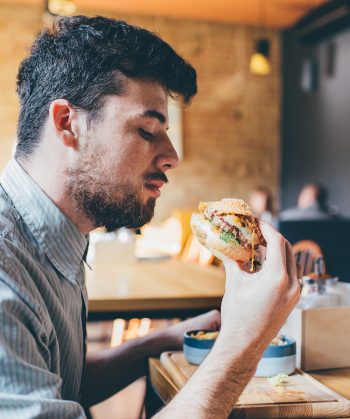Gallbladder Treatment Through Diet: Here’s How You Can Improve Digestion

Everyone has the option to improve their digestive health through daily gallbladder treatment incorporated into their healthy lifestyle.
What role does the gallbladder play in digestion?
This small pear-shaped organ is located under the liver and its job is to store bile secreted by the liver. Bile, a greenish-brown fluid, is essential to effectively emulsify and digest the fats we eat. It also ensures we can absorb and utilize the fat-soluble vitamins in our food.
Bile contains cholesterol, salts, pigments and enzymes which are concentrated and then released in appropriate volumes. Cholecystokinin is a hormone released into the duodenum after we swallow food, which, along with hydrochloric acid, sends a signal to the gallbladder to release bile needed.
Knowing the connection between our meal contents and the gallbladder squeezing out bile, it’s easy to understand why consuming heavy, high fat and fried meals can place increased stress on the gallbladder and require large amounts of bile to break fats down.
Deposits of cholesterol and bile pigments can also collect into hard stones, called gallstones and irritate or block the ducts leading to and from the gallbladder.
Change Your Diet, Change Digestion
Certain risk factors such as gender, age and ethnicity cannot be changed, however diet and lifestyle factors play a key role in the development of gallbladder symptoms, so we can effectively conduct our own gallbladder treatment through awareness and improvements in these areas.
First, reduce fat, especially harmful fats. Healthy fats such as avocado, hemp, coconut, flax and olive oil are good for us and good for regular, effective gallbladder functioning.
Saturated, hydrogenated and otherwise toxic fats are very difficult to digest and lead to higher cholesterol levels, increased gallstone development and painful indigestion symptoms. It is recommended that you incorporate a small amount of nutritious fat into your regular diet.
Next, add bitter greens and vegetables to your diet. Arugula, okra, dandelion, collard greens and many more plants are known for their bitter, bile stimulating qualities.
These dietary additions can boost the amount of bile that the liver secretes and help flush away sludge or stones. The increase in bile also ensures that you have plenty of fat-digesting bile available when you need it.
Add lemon juice or apple cider vinegar daily. A few teaspoons of lemon or ACV are known to encourage bile production, as well as to thin the bile and help soften hard deposits. Sipped in a glass of warm water, these can be effective remedies taking during active gallbladder pain episodes.
Eat less meat and refined carbs, more vegetables and fruits. Citrus fruits are known to improve bile flow and to be antioxidant, healing and supportive of healthy liver function. Green, leafy vegetables and roots like Jerusalem artichoke and beets are liver supporting super-foods with a long history as effective gallbladder treatments.
When bile flow is plentiful and small gallstones are flushed away, signs of poor digestion like gas, bloating, cramps and diarrhea are greatly reduced. Our gallbladders play an important role in healthy digestion so taking care of them is a smart choice.



